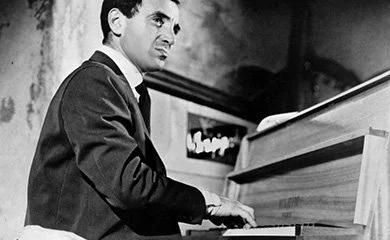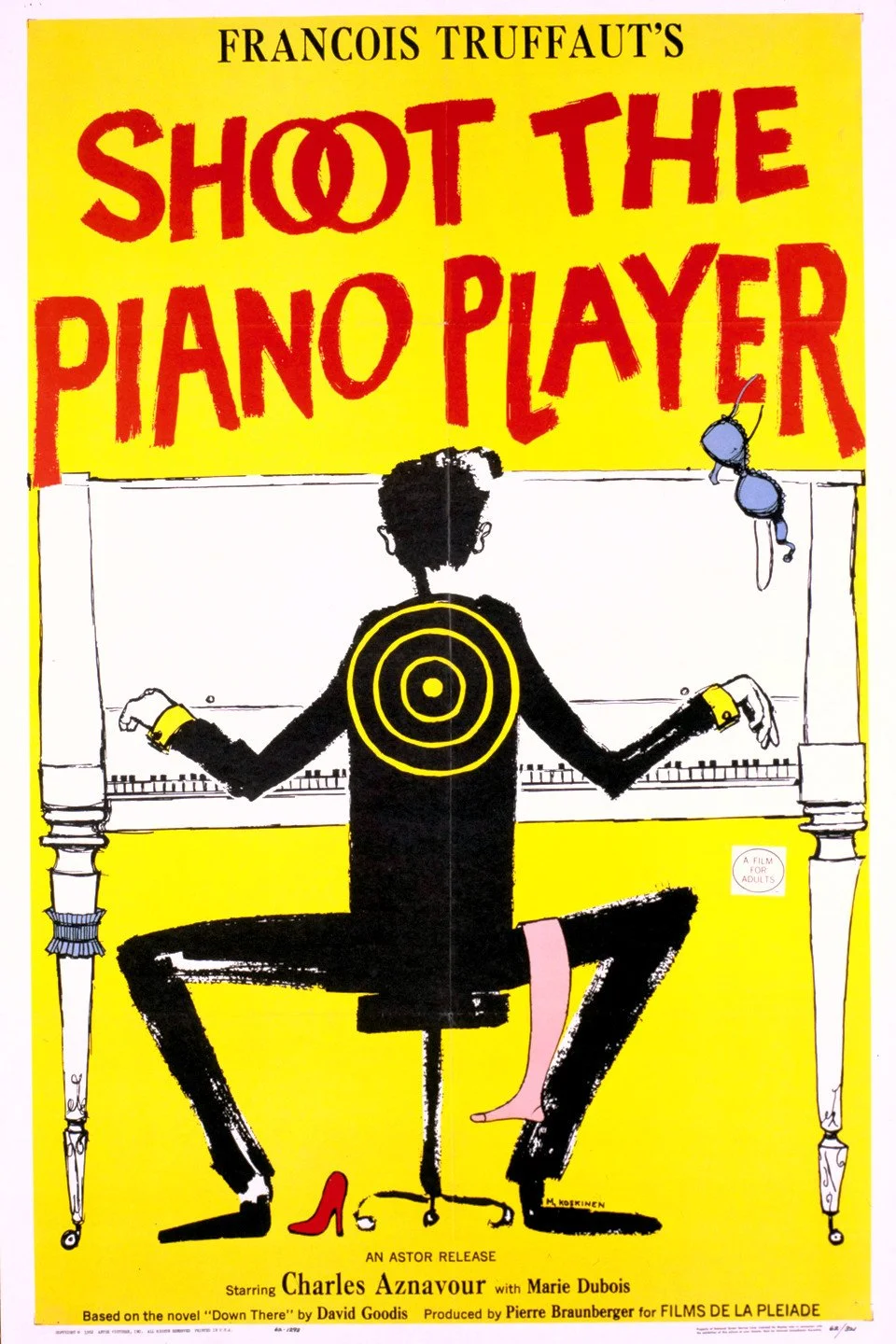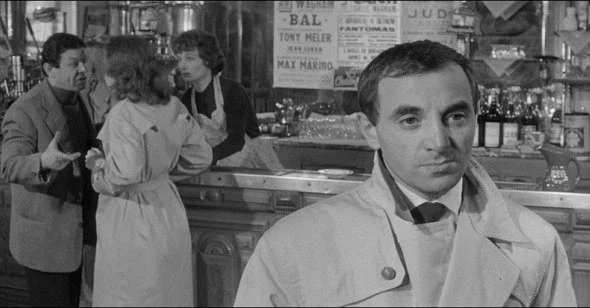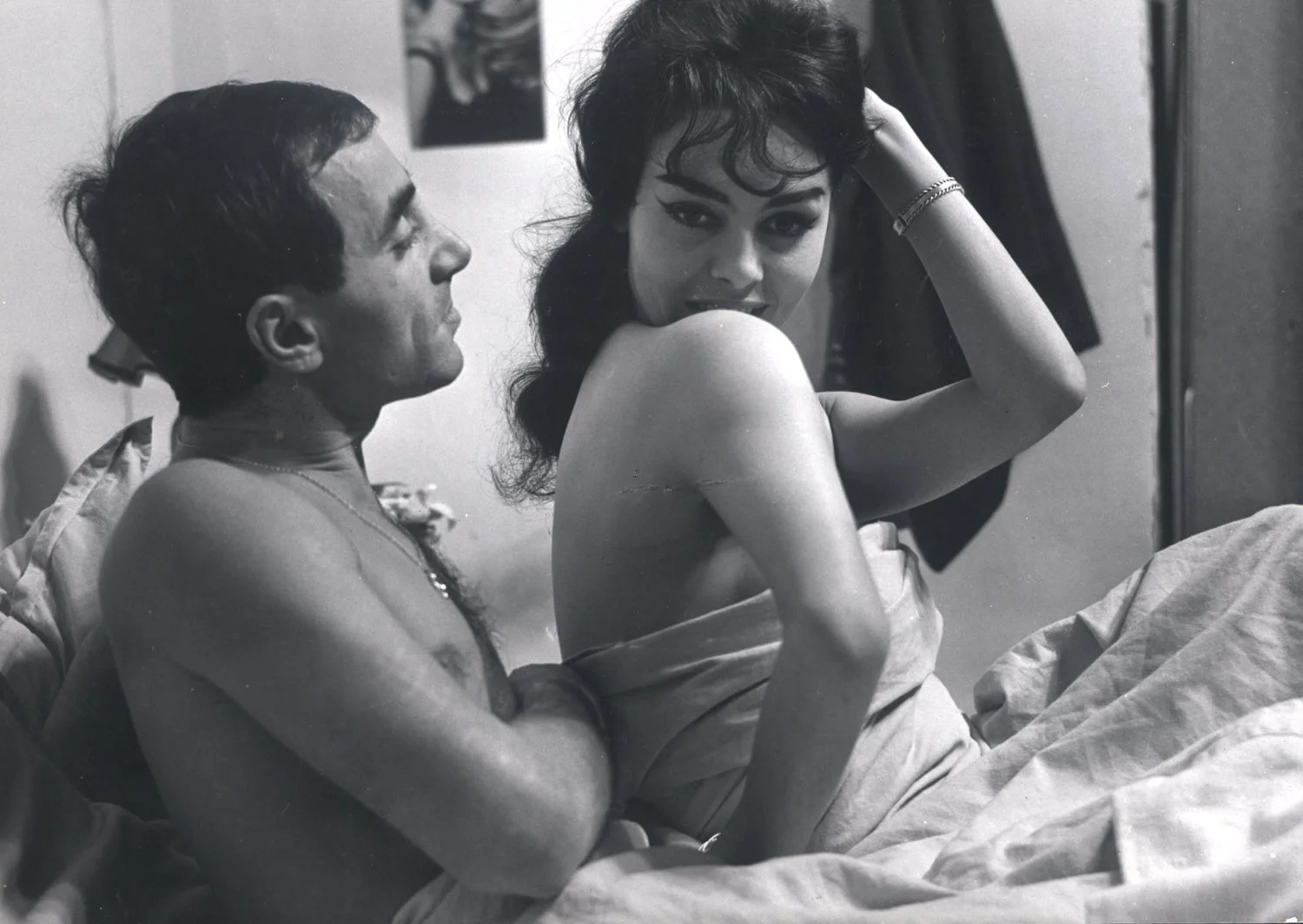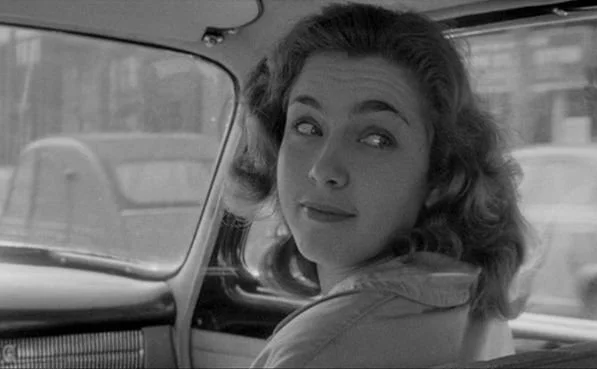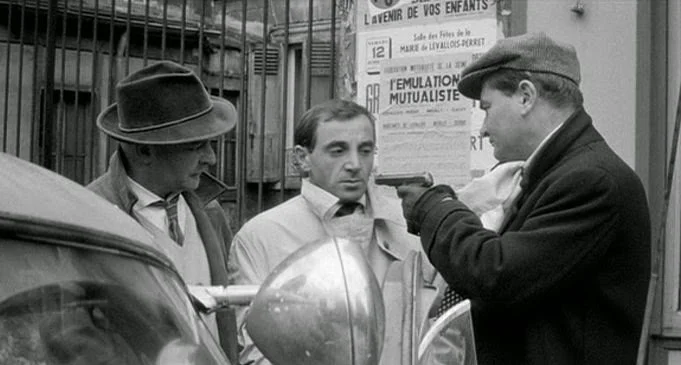Film School Weekend: SHOOT THE PIANO PLAYER
A late programming change allows me to gush about this unexpected masterpiece.
So, full disclosure this weekend.
My initial plan was to devote this space today to Francois Truffaut's third film, JULES AND JIM. After talking a couple of weeks ago about his trailblazing debut, THE 400 BLOWS, it felt like a good idea to jump over to his next nearly-larger-than-life-in-reputation film, his 1962 saga about two friends who end up falling in love with (and being seduced by) the same woman over the course of twenty-five years.
And, indeed, I ended up watching it and, as everybody says, it's great! It features a character-driven plot line that is at once endlessly complex and totally heartbreaking, not to mention innovative (Martin Scorsese devotes a whole section of his Masterclass to the use of voiceover in its opening minutes). To be honest, I'm not sure I fully absorbed the whole thing in the lone viewing of it I have under my belt; it constantly surprised me, which meant I spent much of the time recalibrating my expectations throughout. This tends to make expounding on JULES AND JIM at any length a little tricky since, well, I'm not sure I precisely know what I'm talking about yet.
But, the intent was to write about it, so prepare to write about it I did. And then I found I had a spare eighty minutes on my hands one night. And I noticed that, between Truffaut's first and third films, there sat another movie, SHOOT THE PIANO PLAYER. It seemed like a quick watch, and I thought maybe it would help inform me as to his arc between 400 BLOWS and JULES AND JIM. What was the harm?
So I watched it.
And I was blown away.
Sorry, JULES AND JIM.
SHOOT THE PIANO PLAYER (1960)
Directed by: Francois Truffaut
Starring: Charles Aznavour, Marie Dubois, Nicole Berger, Michele Mercier
Written by: Truffaut, Marcel Moussy
Released: November 25, 1960
Length: 81 mins
Intended as a tribute to the 30's and 40's American B-movie, the initial thrust of SHOOT THE PIANO PLAYER will seem familiar to any other noir aficionado. We start with a man clearly on the run from some bad people, and follow him briefly as he stumbles into a lively piano bar. He insists on an audience with the piano player, who we quickly learn is his brother. There's clearly a history that the piano player, Charlie (Aznavour) is running from; Charlie isn't even his real name, it's Eduoard. Regardless, he wants nothing to do with his brother's affairs. Alas, as many hapless heroes of noir often find out, trouble finds him regardless. His brother has ripped off a pair of gangsters and is now trying to elude his fate. Alas, just by contacting Eduaord, he's gotten him involved.
Along the way, we learn more about Charlie/Eduaord through his relationships with the three major women in his life. There's his former wife Therese (Nicole Berger), whose decisions we learn about in flashback and inform his new identity as Charlie. There's Clarisse (Mercier), a prostitute who sees Eduoard often and is raising her little brother Fido. Finally, there's Lena (Dubois), the piano bar waitress who's slowly falling in love with him and finds herself in the middle of his run-ins with a pair of gangsters.
Sure, it's all fairly rote, even by 1960, but this movie isn't necessarily trying to break ground by its plot. No, where it really makes an impression is in its storytelling and directing technique. Simply put, SHOOT THE PIANO PLAYER is probably one of the most playful movies I've ever seen.
The movie seems to change genre at will every few minutes or so. Sometimes it's a noir tribute, sometimes it's a gentle comedy, sometimes it practically borders on broad farce, sometimes it's a heightened melodrama. And it manages to do it with such ease, changing gears practically right before your eyes. I'm sure there have been many films before and since that have threaded this needle before, but I've rarely seen a movie succeed so well at attempting so much.
That's not to say SHOOT THE PIANO PLAYER is fully groundless; when the movie aims for both pathos and drama, it's actually genuinely affecting. There's a whole section in the middle where we really get to learn and see Eduoard and Therese's married life, with all the jealousies and perfectionisms that come with living with a professional concert piano player (as well as those costs). But Truffaut isn't afraid to swing for the fences with frequent pauses for things like bawdy songs, or wild punchlines that come out of nowhere; no joke, SHOOT THE PIANO PLAYER contains maybe one of my favorite unexpected jokes ever, after one of the gangsters swears to the truth of his recent statement, lest his mother should drop dead.
This was all an active choice on the part of Truffaut; he found a lot of success with THE 400 BLOWS and rightly so. But there was a common sentiment that it was very French. Wanting to show that he could have a varied and fruitful career, Truffaut went the total other way with his follow-up feature, going for something with uniquely American sensibilities. The screenplay is officially credited to Truffaut and his 400 BLOWS collaborator, Marcel Moussy. But, in truth, Moussy couldn't find an entry point with either the script nor its source material (David Goodis' novel Down There). Moussy wanted to ground the characters, while Truffaut insisted on keeping things loose and abstract. Moussy left the project soon thereafter.
Truffaut was right to stick to his guns on this one. He had an ethos for putting SHOOT THE PIANO PLAYER together; "I wanted to break with the linear narrative and make a film where all the scenes would please me. I shot without any criteria." And you can feel him doing just that, although it does feel like if there were criteria, it might be "pay homage to 40's Hollywood at every turn". There are apparently references to the works of director Nicholas Ray and Sam Fuller crammed in there, as well as more obvious references to stuff like The Marx Brothers (one of the brothers' names is Chico) and the filming techniques of silent films (the use of irises pervade throughout).
It should be noted that none of this would work without the abilities of the cast at its center. Aznavour is perfect as the man in the middle, the titular piano player. He plays everything straight, which is an informed move. As a result, the comedy around him seems that much funnier, BUT when it's time to play the drama, you easily buy it. He has one of those faces and sets of eyes that connote whole histories without having to write a single line of dialogue.
The three women are all great as well; what's fun about them is that they each provide a different personality type. Clarisse is sweet and sexy, Therese is subtly acidic and devastating, and Lena is hopelessly romantic. Special mention, though, should go to Marie DuBois, who plays Lena and endows her with a hopefulness that the other characters don't quite have. The reason I point her out is that she would go on to star in....JULES AND JIM! If you've never seen it, suffice to say she plays a completelydifferent type of character and philosophy, an example of the versatile kind of player you don't always see in the modern day.
Listen everyone, I don't know what else to say without beginning to give stuff away. SHOOT THE PIANO PLAYER is a damned delight, alright? How often do you see a filmmaker's career take such an interesting turn just two films in? Seriously, compare this to the feel and style of THE 400 BLOWS, a movie that's so controlled and so singular in its focus. It's a coming of age story that's told so simply, it's almost not apparent at first what made it so special, either then or now. The particular magic there is in its subtleties and the invisible hand of its creator.
Not SHOOT THE PIANO PLAYER. With this one, you're fully aware of the person behind the wheel, and he's having a blast! And so are you as a result. So, please, check it out. It's available for streaming right now on the Criterion Channel, as part of that massive 44-film French New Wave collection they dropped earlier this month. It goes down so easy and you're gonna have a good time.
And...that'll do it for French New Wave this month! I'll be pivoting to a new series that's a little closer to home and maybe a decade more modern next week. See you then!
